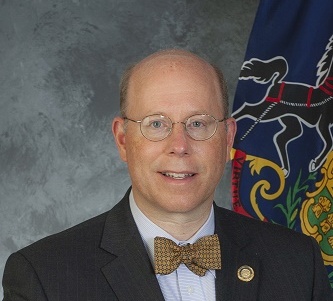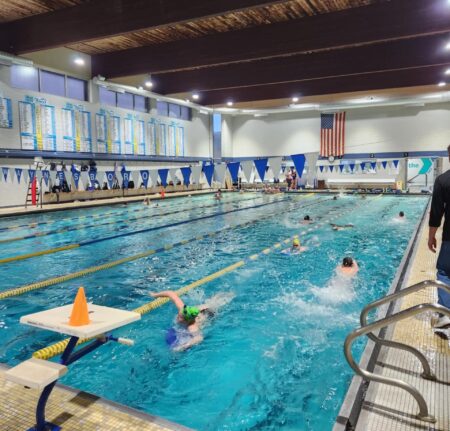PHILADELPHIA – The Department of Aging convened a gathering of Alzheimer’s Disease researchers from the University of Pennsylvania’s Perelman School of Medicine and the University of Pittsburgh in a daylong forum to share and discuss their latest work in the areas of prevention, treatment and caregiving.
Aging Secretary Robert Torres and Najja Orr, CEO and President, Philadelphia Corporation for Aging, also participated in the in-person/virtual event, which was hosted by the University of Pennsylvania Institute on Aging.
“Pennsylvania is fortunate to be home to two National Institutes on Aging-funded Alzheimer’s Disease Research Centers (ADRC) at the University of Pittsburgh and the University of Pennsylvania. As world-class research institutions, Pitt and Penn are doing a lot of work to help mitigate or eliminate Alzheimer’s, and to develop models of caregiving,” said Torres. “It’s a privilege to learn from experts of these institutions and explore collaborations that can help inform policy and interventions for those of us who serve older Pennsylvanians.”
More than a dozen researchers from the two universities and their respective Alzheimer’s disease research centers presented a sampling of research ranging from the latest laboratory and clinical findings to topics such as addressing the needs of underserved communities, meeting the social needs of persons with dementia, putting dementia care findings into practice at long-term care facilities, and developing new technologies such as the use of personal assistive robots.
“We are pleased to provide a sampling of the innovative and tremendous breadth of research that is being conducted at Pitt and Penn. We also welcome the chance to discuss collaborative opportunities between our institutions, the Department of Aging, and the Philadelphia Corporation for Aging, in order to improve the treatment and care of individuals with Alzheimer’s Disease and their caregivers,” said David Wolk, MD, a professor of Neurology in the Perelman School of Medicine, who co-directs Penn’s Institute on Aging with Edward Lee, MD, PhD, an associate professor of Pathology and Laboratory Medicine.
Penn’s Institute on Aging was created in 1979 to improve the health of the elderly by increasing clinical and basic research as well as educational programs focusing on normal aging and age-related diseases across the entire Penn campus. Current research projects are wide-ranging, investigating neurodegenerative diseases, frailty, longevity, and geroscience, among other areas.
“Alzheimer’s disease research, from the bench to the bedside, continues to give us hope for improving the care and quality of life for older individuals,” Lee said.
“The ADRC of Pittsburgh continues to expand opportunities for our research participants, increase support for caregivers, and provide researchers from the region with the framework to develop innovative projects,” said Pitt’s ADRC co-directors Oscar Lopez, MD, and Julia Kofler, MD. “Pitt and Penn’s programs have been a part of the local Pennsylvania communities for decades, working with diverse populations to support and improve the lives of research participants, families and caregivers,” Lopez noted.
There are currently 280,000 Pennsylvanians over the age of 64 living with Alzheimer’s disease, the most common cause of dementia, and another 100,000 with related disorders.
In 2018, Wolf established the Alzheimer’s Disease and Related Disorders (ADRD) Task Force, which has worked with other state agencies and stakeholders to respond to the anticipated increase in Alzheimer’s disease and related disorders. The task force has created an annual ADRD forum that each year draws hundreds of stakeholders to a discussion of emergent issues and is expanding efforts to create a dementia-friendly Pennsylvania by collaborating with national and statewide partners to support training, build awareness, and promote community action.
In 2019, the ADRD Task Force and the Department of Aging partnered with the Jewish Healthcare Foundation to support dementia-friendly PA efforts by training dementia champions and dementia friends statewide. The effort has trained 147 champions and 7,308 dementia friends, exceeding program goals.
“With the incidence of Alzheimer’s Disease continuing to rise, we must employ the best research and practices to help meet the care needs of patients and their families,” said Torres.






















